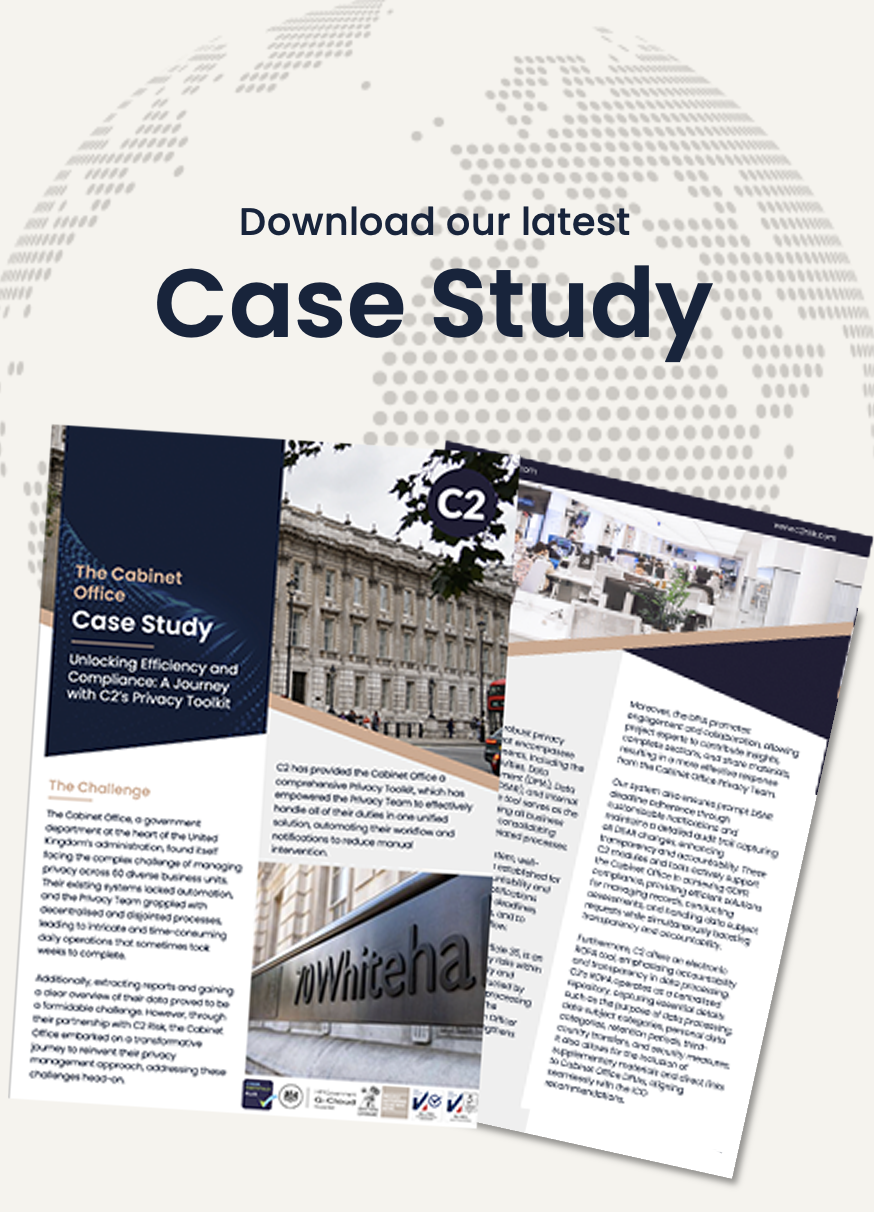5 Steps to Data Privacy in Your Supply Chain

5 Steps to Data Privacy in Your Supply Chain
A step-by-step guide to bring your entire data strategy in alignment with GDPR & ePrivacy Directive.
Collecting and using personal data online is not only a legal requirement that could have serious ramifications on your business if breached but is critical to building user relationships across your platforms. The GDPR requires any businesses collecting data, defined as controllers, to put an appropriate agreement in place with the companies receiving data from it, whether they are a related organisation or a third-party processor of the data.
Since GDPRs enforcement in May 2018 (as the Data Protection Act in the UK) , the consequences for those not compliant have been far-reaching. In fact, since the compliance date collectively. In fact, since the compliance date collectively fines have now reached over €4 billion, with the largest solo fine, announcement just earlier this year for Meta (formerly known as Facebook) fined a groundbreaking €1.2 billion.
While the regulation is influencing change, many businesses have been slow to adapt – however as more and more businesses are penalised for noncompliance, demand for greater data protection is rapidly increasing, as seen in the rise of Data Protection Officers increasing by over 700% since 2018.
A key challenge for any organisation is keeping track of all vendors and managing the points of access they have into your information assets. Below, we share 5 simple steps to align your supply chain data security strategy with GDPR & ePrivacy Directive:
Understand the Legal Framework
Ensure that not only yourself but also your vendors and third-party service providers also comply with the GDPR and ePrivacy Directive – understanding the legal requirements and obligations outlined in the regulations as well as the consequences of non-compliance.
Review your contracts with them to include specific data protection obligations, such as confidentiality clauses, security requirements, and restrictions on data processing.
Conduct a Data Audit
Assess the data processing activities carried out by your vendors and evaluate their compliance with the GDPR. Obtain and review their data protection policies and practices to ensure they align with the regulations. Consider conducting regular audits or assessments of your vendors to verify ongoing compliance.
Implement Privacy Policies and Notices
Clearly outline your expectations for vendors’ handling of personal data in contractual agreements. Include provisions that require vendors to implement appropriate technical and organisational measures to safeguard the data they process on your behalf. Establish procedures for regular vendor assessments to ensure continued compliance.
Establish Data Protection Measures
Implement strict access controls to limit data access to authorised personnel only, both internally and among your vendors. Implement a process that allows you to regularly monitor and review the security measures employed by your vendors, such as encryption, secure data transfer protocols and secure storage practices.
Obtain Consent and Supply Opt-Out Options
Collaborate with your vendors to ensure that they are also obtaining valid consent from individuals when processing personal data on your behalf. Establish the processes and mechanisms for managing consent and opt-outs across your vendor network. Ensure your business and third party suppliers maintain clear records of consent to demonstrate compliance with the GDPR requirements.
By following these simple steps, you can not only align your business’ data strategy with the GDPR and ePrivacy Directive but also establish robust processes to enhance data security throughout your entire supply chain.
Remember to regularly review and update your practices to adapt to any changes in the regulatory landscape, keeping your business and customer data secure.
To find out how C2 can help you implement a seamless Vendor Risk Management solution that allows you to reduce and mitigate your supplier chain vulnerabilities in just minutes, book a call with one of our team today.
With increasing dependency on vendors in today’s interconnected world, check out our other blogs on how you can better understand your extended enterprise and data protection processes.



